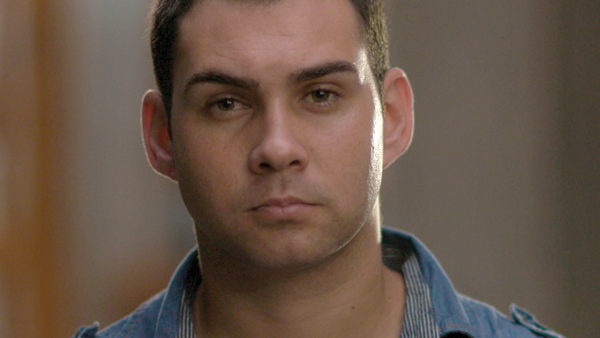The informative, insightful Elián recaps the saga of Elián González, which rehashed old grievances between Cubans in the United States and dictator Fidel Castro. For those who may not recall, Elián was the lone survivor of an attempt by would-be refugees to enter South Florida by boat. In late November of 1999, the five-year-old Cuban boy, who lost his mother on the journey, was found floating in an inner tube by a pair of fishermen, and he subsequently stayed with relatives in Miami while the U.S. government decided his fate.
As stated in the film, Elián’s story could have played out differently. With his new family, he could have built a new life for himself in America. However, a recurring theme is that nothing related to him was simple. Although Miami had been a popular destination for Cuban dissidents escaping from Castro during the 1950s to 1970s, that also made the city a hotbed of activism against the Cuban government. As such, from nearly the moment Elián is introduced to the public, anti-Castro forces start rallying around the boy—creating posters, staging protests, and pointing to how his mother risked her life to reach America as indicative of Castro’s evil.
But the film isn’t just about Elián as a political prop, as directors Tim Golden and Ross McDonnell also recall the round-the-clock media frenzy that developed around him. While his situation was doubtlessly compelling, it isn’t long before reporters and camera crews camped outside his relatives’ home, turning his every stray word or activity into breaking news. Yet it’s clear from archived footage that much of the “news” on Elián was disposable. The time journalist Diane Sawyer spends time with him privately amounts to little more than the not-so-major revelation that the boy is sad.
However, the rampant media coverage allows for Elián to end up on the personal radar of Castro, who at the time desperately needed a means of propping up his government in the face of a weakening economy. In Elián, he found a lightning rod. Like the exiles, Castro stages large-scale rallies, albeit aimed at condemning the United States, whom he accuses of stealing a son of Cuba. A media war ensues over whether to send Elián home versus letting him stay, but judging from the intensity of the people on the streets of Miami, it’s less about what’s best for him than revenge against Castro.
Ironically, what gets lost in the 24-hour whirlwind are those at the heart of the story. There are plenty of people who purport to speak for Elián, but they have secondary agendas that potentially cloud their judgement. The aforementioned relatives, for example, are related to his late mother and share her politics; as such, it’s clear from early on they oppose sending Elián back. Meanwhile, during those rare moments in which he actually expresses what he wants, it gets lost amid constant spin-doctoring by both sides. Another voice that gets overwhelmed is that of Juan Miguel Quintana, Elián’s father and a Cuban national still living in that country, with whom the boy appears to share a loving relationship, though that seems to be of secondary importance to the media behind the revelation that Quintana has a job as a parks worker for the Castro government.
The way in which we get to know Elián is through home video footage of him prior to leaving Cuba, which forms a sharp contrast to his time in Miami. In both versions of Elián, he comes across as shy, though if he’s slightly more guarded in South Florida, that could be for a number of reasons—the death of his mother, an unfamiliar environment, and being surrounded by strangers. Ultimately, he’s a tabula rasa, more a symbol on which those around him project their own desires and emotions than a protagonist in his own story.
However, along with taking viewers back to a contentious time in U.S./Cuba relations, the film finally gives Elián his chance to speak, which he takes advantage of throughout. Along with offering bouts of commentary, he catches viewers up on his life since the incidents of roughly two decades earlier. This is part might prove disappointing for some, given the choices he has ended up making. But on the one hand, given how little control over his own life he seemed to have in Florida, anything seemed like a better deal. Secondly, any disappointment among viewers is likely the result of their own baggage regarding Cuba and its politics, which, both then and now, should never have been Elián’s cross to bear.

















Leave A Comment